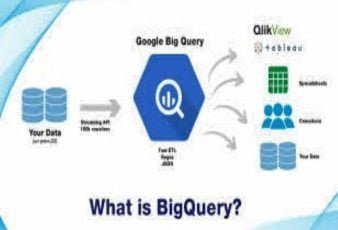In an era dominated by technological prowess, corporations are increasingly turning to employee monitoring as a means to enhance productivity and ensure operational efficiency.
The prevalence of cloud-based employee monitoring systems has skyrocketed, with approximately 50% of corporations adopting these tools. As businesses harness the power of data analytics, the ethical implications of monitoring employees’ activities demand a closer inspection.
Here we will get into the intricacies of employee monitoring, exploring its definition, why employers prefer it, and the ethical boundaries that surround this evolving practice.
Defining Employee Monitoring
Employee monitoring, in its essence, involves the systematic tracking of employees’ activities during work hours. This includes monitoring internet usage, computer applications, and even physical location in some instances. The shift towards remote work has further intensified the need for effective monitoring, leading to the rise of cloud-based solutions.
Why Employers Prefer Employee Monitoring
1. Boosting Productivity
Employers cite increased productivity as a primary motivation behind implementing monitoring systems. Cloud based employee monitoring tools, such as Controlio software, provide real-time insights into employees’ activities, enabling employers to identify bottlenecks and optimize workflows.
2. Security Concerns
In an age where data breaches and cyber threats loom large, monitoring helps companies safeguard sensitive information. By tracking digital footprints, employers can swiftly detect and mitigate potential security risks.
3. Resource Allocation
The efficient allocation of resources is crucial for any business. Employee monitoring allows employers to identify areas where resources are underutilized, enabling them to make informed decisions for optimal resource allocation.
Navigating Ethical Boundaries
While the advantages of employee monitoring are evident, the ethical boundaries surrounding this practice are blurred. Striking the right balance between productivity and respecting employees’ privacy is a delicate challenge for corporations.
A. Informed Consent
One of the ethical touchpoints is ensuring that employees are aware of the monitoring policies in place. Transparency fosters trust and allows employees to make informed decisions regarding their work habits.
B. Proportional Monitoring
Employers must avoid excessive intrusion. Monitoring should be proportional to the nature of the job and not extend to employees’ personal lives. Striking this balance requires careful consideration of the type and extent of monitoring.
C. Data Security
As corporations collect vast amounts of data through employee monitoring, ensuring the security of this information is paramount. Cloud-based systems, like Controlio software, boast robust security measures, but companies must remain vigilant in safeguarding sensitive data.
The Rise Of Cloud-Based Employee Monitoring
The digital revolution has ushered in an era where data is king. Cloud-based employee monitoring systems offer a flexible and scalable solution for corporations seeking real-time insights into their workforce.
Controlio: A Glimpse into the Future
Controlio is a leading player in the realm of cloud-based employee monitoring. This advanced tool provides employers with a comprehensive view of their employees’ activities, from time spent on applications to internet usage patterns. With Controlio, businesses can seamlessly navigate the delicate balance between productivity and ethical monitoring.
According to a recent survey, 72% of companies actively monitor their employees in some way. Among these, nearly 50% rely on cloud-based solutions, highlighting the growing preference for remote monitoring tools.
Conclusion
As corporations grapple with the evolving landscape of employee monitoring, ethical considerations remain at the forefront. Striking a balance between productivity gains and respecting employees’ privacy is an ongoing challenge.
Cloud-based solutions, exemplified by Controlio. It offers a glimpse into the future of employee monitoring, a future where transparency, proportionality, and data security coexist to create a work environment that is both efficient and ethical.
Read Also:
- Expressing Gratitude: How To Write Employee Thanksgiving Cards
- The Top 6 Reasons To Offer Your Employees Health Insurance
- 700 Employees Have Been Laid Off By LinkedIn In Second Round Job Cuts!






























